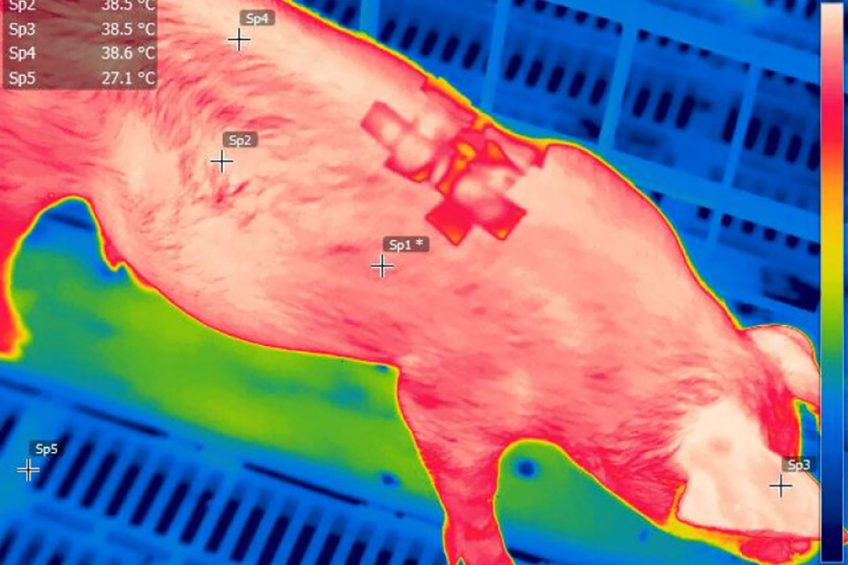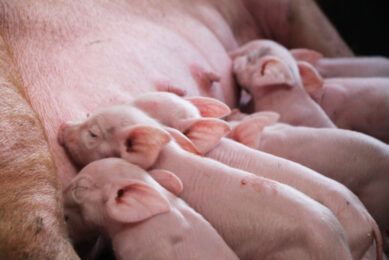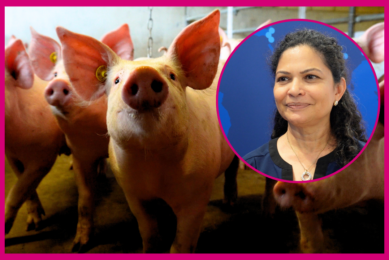Prize for predicting best temperatures for piglets

A combined Brazilian-US study into techniques to smartly assess required supplemental temperatures for piglets has received an award by the American Society of Agricultural and Biological Engineers (ASABE).
The study, called ‘Prediction of Optimum Supplemental Heat for Piglets’ won the award for using a smart and sustainable system for temperature control during the lactation phase.
Determining optimal supplementary heat for piglets
The partnership included researchers from São Paulo State University (UNESP), in Brazil, and Cornell University, in the United States. The scientists developed a system that uses innovative solutions in order to determine optimal supplementary heat for piglets.
The study was published in the peer-reviewed journalTransactions of ASABE and was considered the best work of the year in the category ‘Plant, Animal & Facility Systems’, which included more than 500 papers.
Welfare, sustainability and energy efficiency
The researchers wrote in their abstract: “In this study, we determined optimum supplemental heat requirements (supplied by heating lamps) for piglets based on energy balance as a function of air temperature and animal body weight.” In doing so, the combination ensures animal welfare, sustainability and energy efficiency.

The researchers concluded that for air temperature between 15-19°C, the predicted optimum supplemental heat was 266-344 W and 44-128 W for piglets weighing 1 kg and 20 kg, respectively. The predicted optimum supplemental heat was roughly 200 W lower for piglets at the end of the farrowing cycle (assuming a weight of 20 kg) than at birth (assuming a birth weight of 1 kg).
Reducing energy consumption on swine farms
Alex Sandro Campos Maia, professor at UNESP and one of the article’s authors, responded: “I believe that most interesting topic in our study was the use of innovative techniques in order to predict and reduce energy consumption and improve thermal comfort and animal well-being.”
Trial in pig unit in São Paulo state
The research was carried out in a unit in Jaboticabal, São Paulo state, Brazil, where data were collected. These were processed in the USA through a scientific cooperation with professor Kifle G. Gebremedhin at Cornell University.

The Brazilian researcher Hugo F. Milan is the main author of the work. He responded, “It is an honour to be awarded by ASABE. This is the first time that a winner study in animal field has a Brazilian as the first author in that prize.”
Improving thermal comfort and animal welfare
Professor Campos Maia also takes part of the research group Inobio-Manera (short for Innovation in Biometeorology and Animal Welfare), which focuses on improving thermal comfort and animal welfare, using concepts of environmental responsibility and generating innovation aligned with development sustainable.
He said, “We hope to contribute to sustainability through lower anthropic CO2 emissions and improving the quality of life of these animals. Besides that it helps on a greater producer satisfaction by reducing costs and to a better perception by consumers.”
The award-winning paper in the journal Transactions of the ASABE was the result of a study that was supported by the Brazilian National Council for Scientific and Technological Development (CNPq), the São Paulo Research Foundation (Fapesp) and Cornell University, Ithaca, NY, USA.











